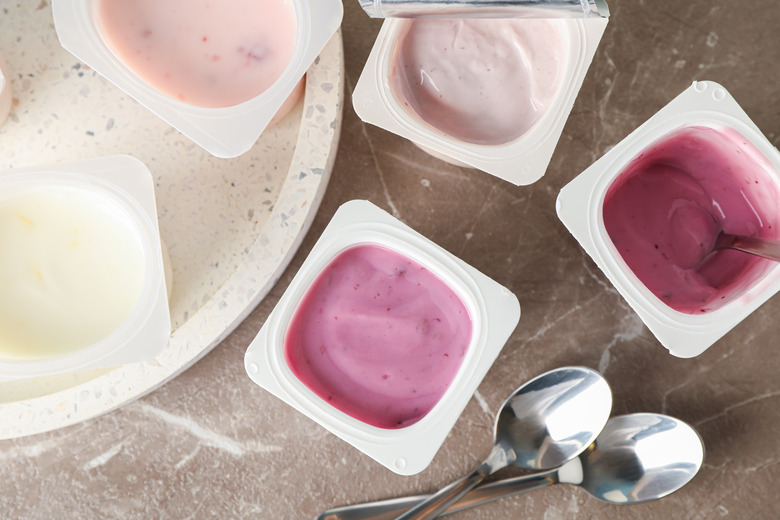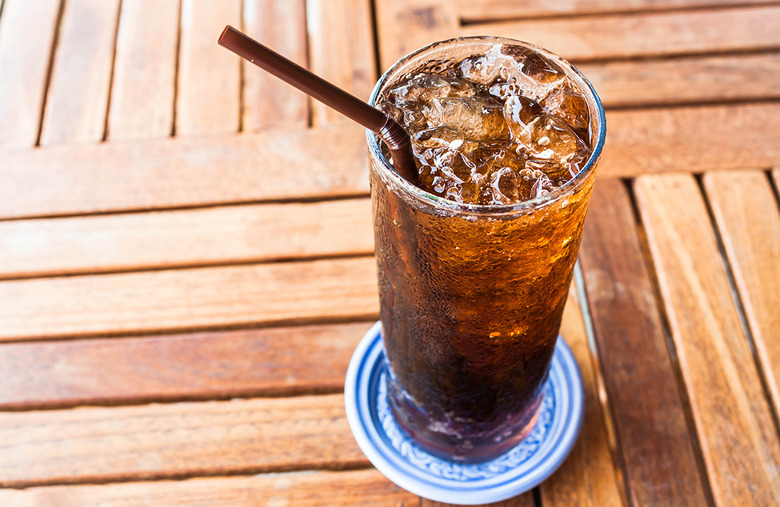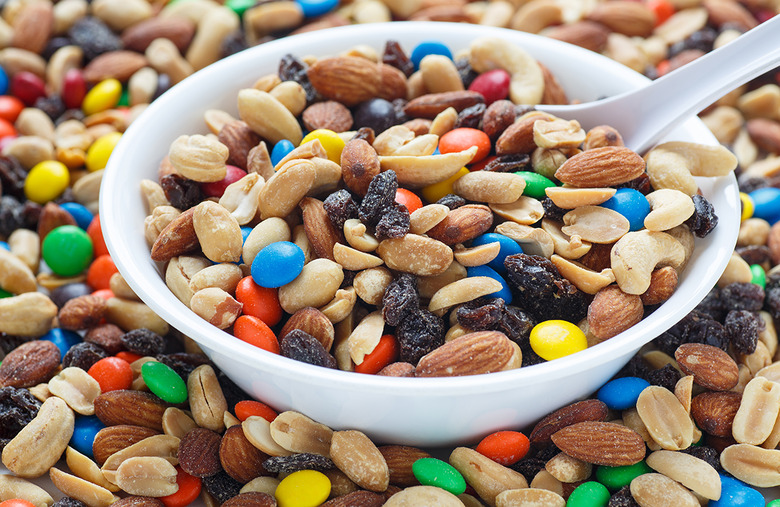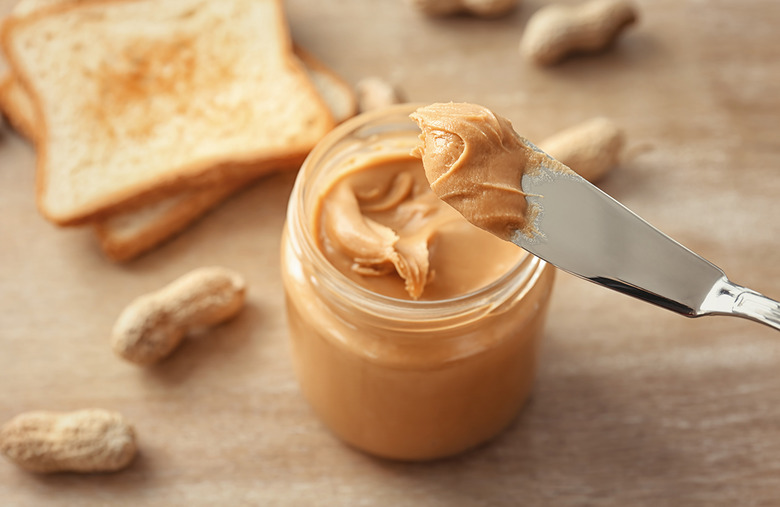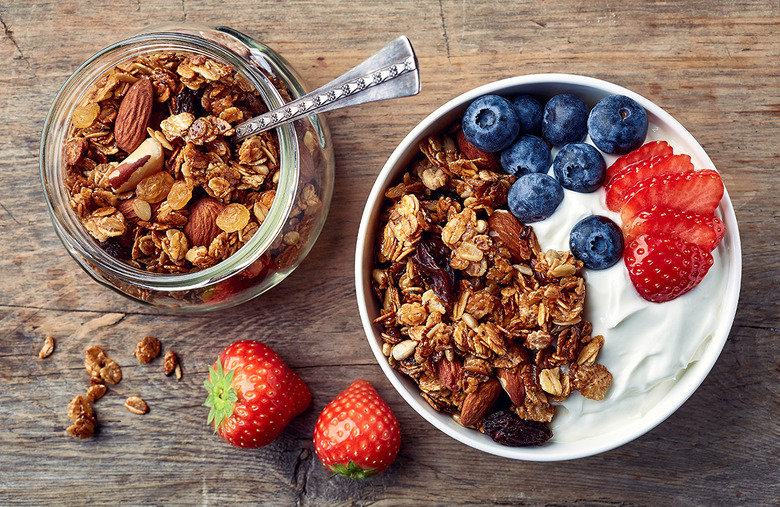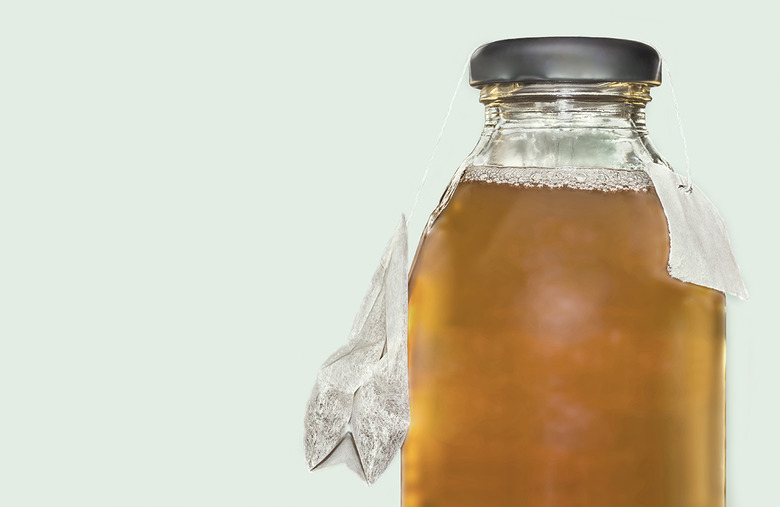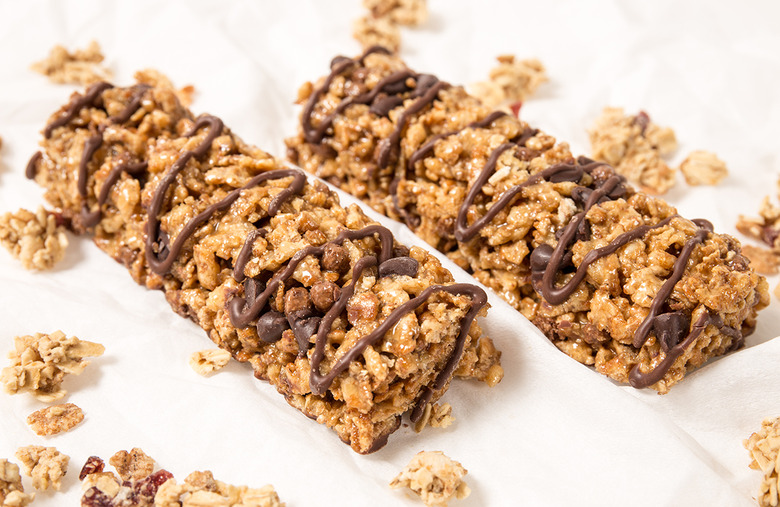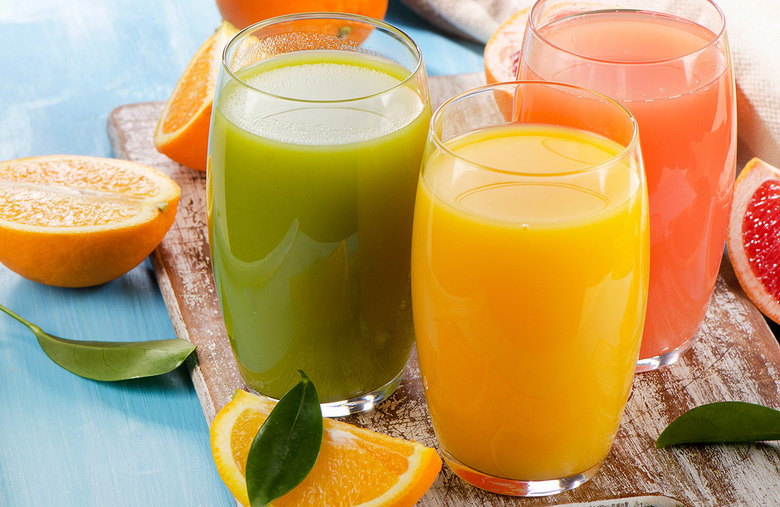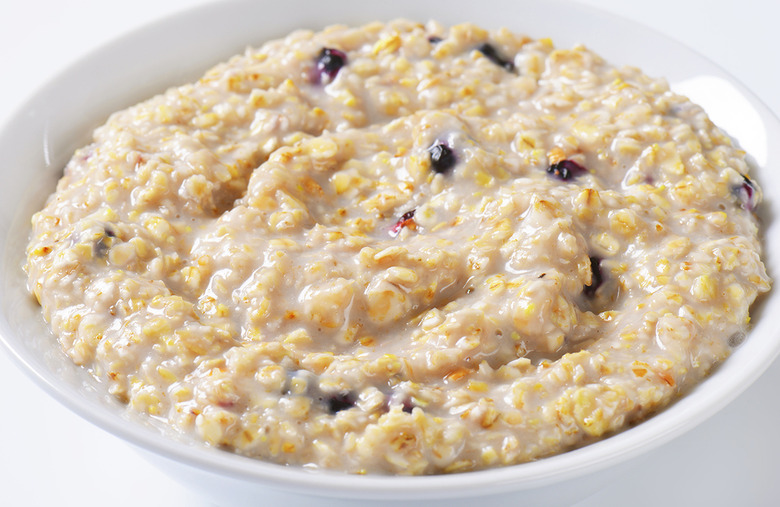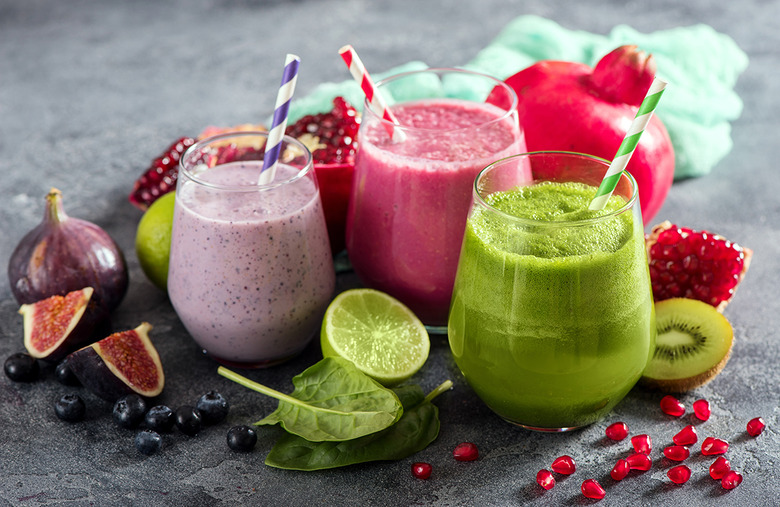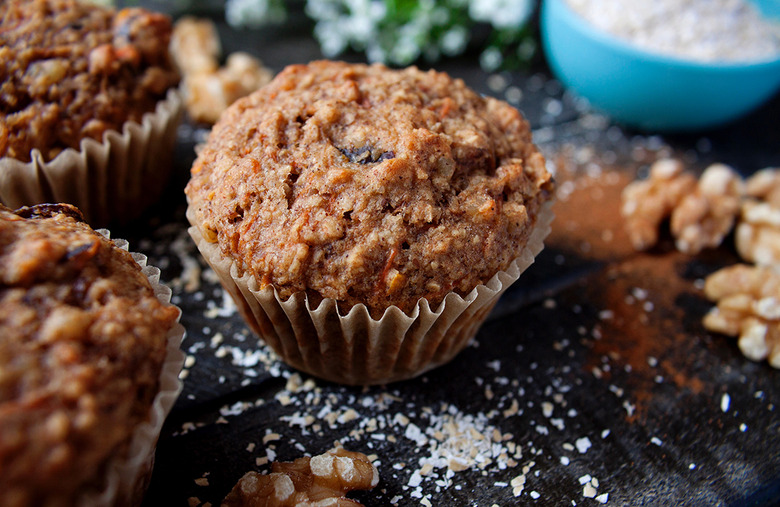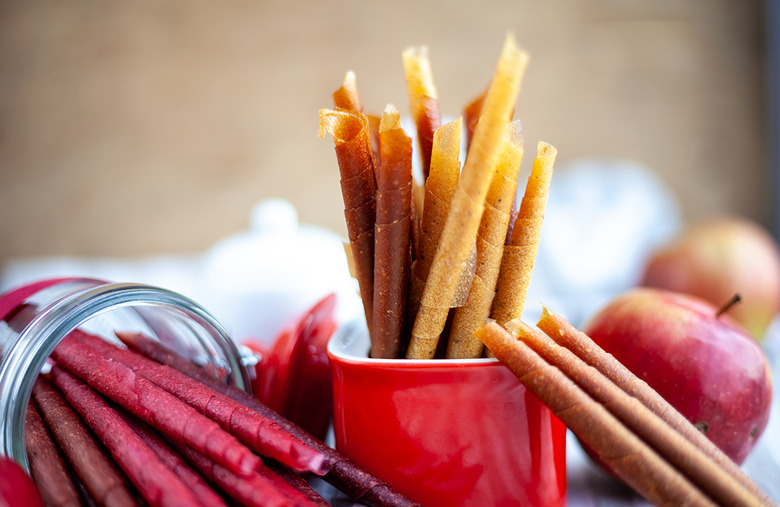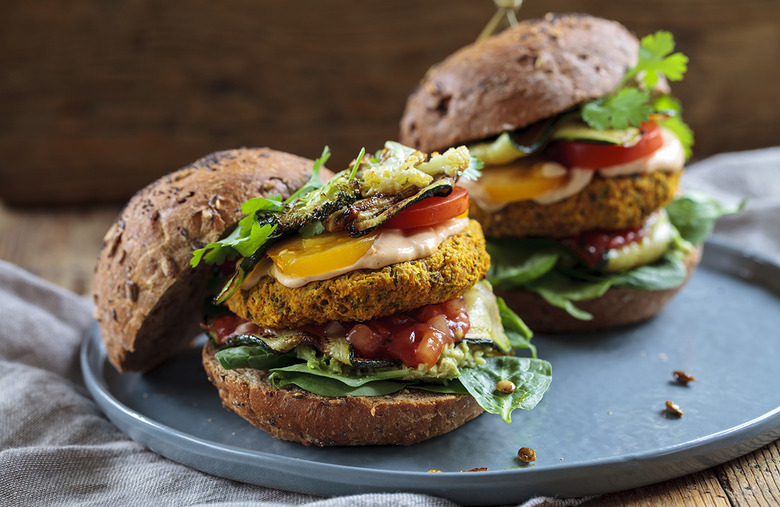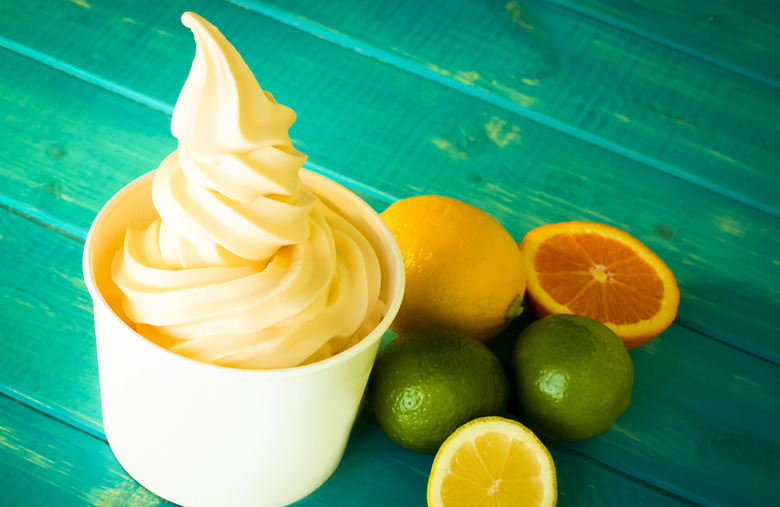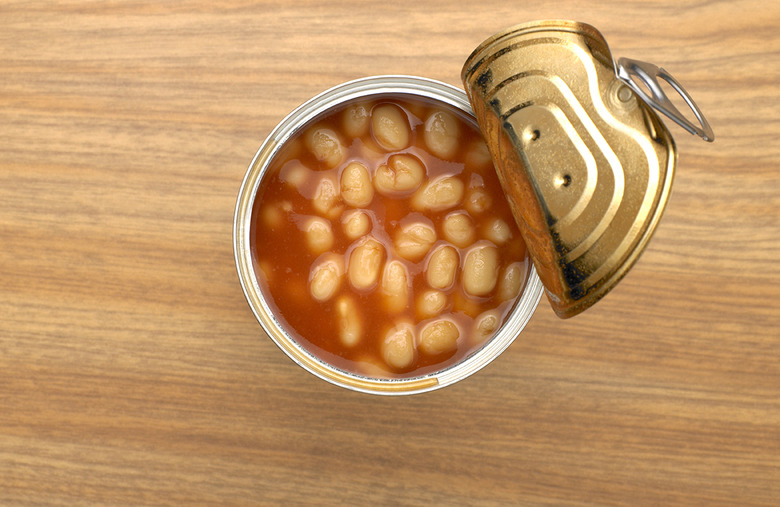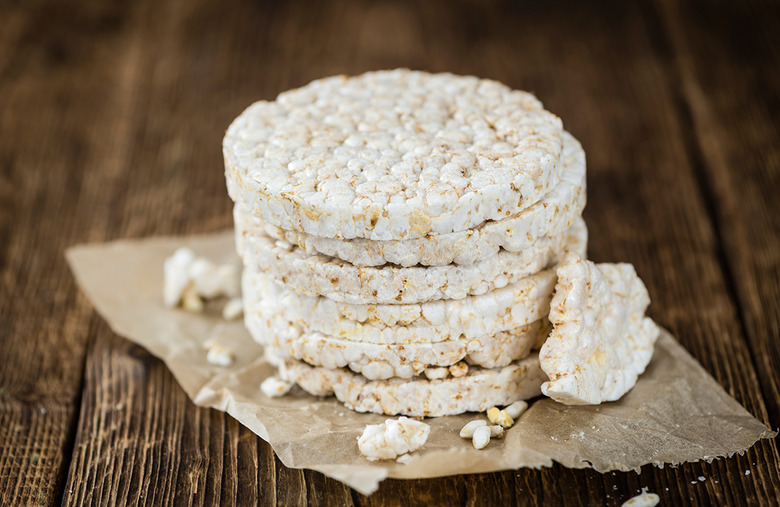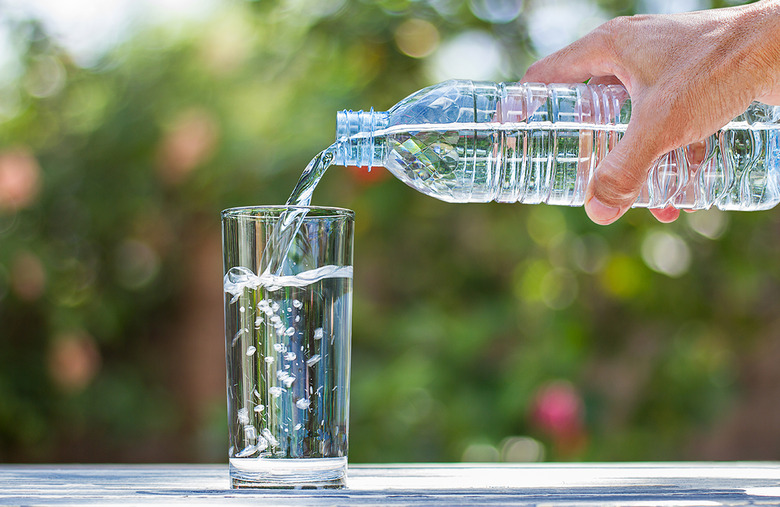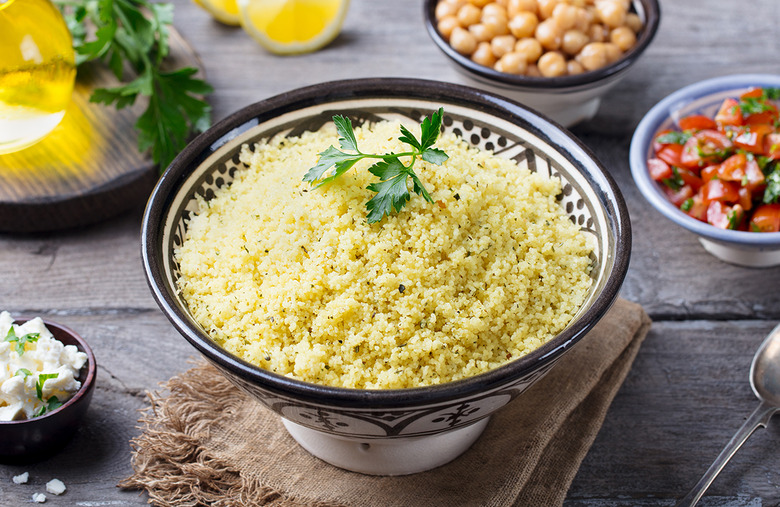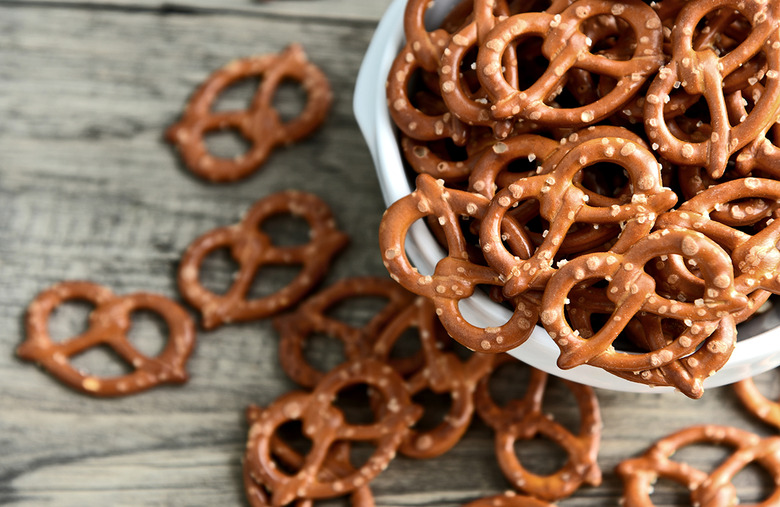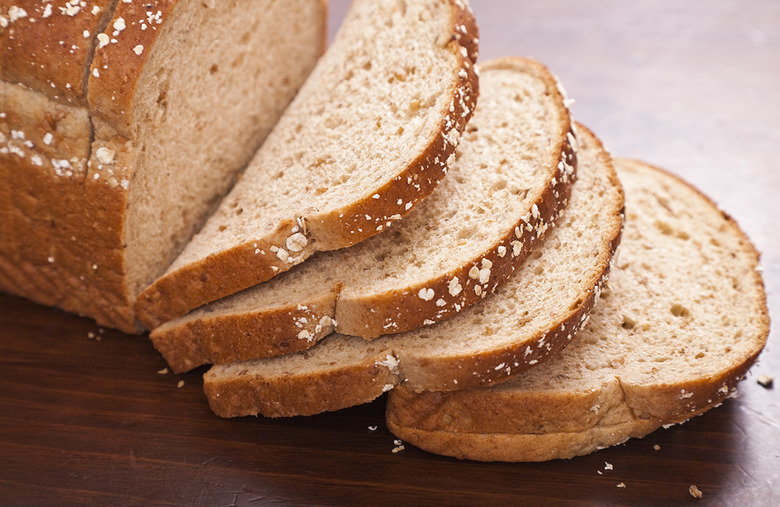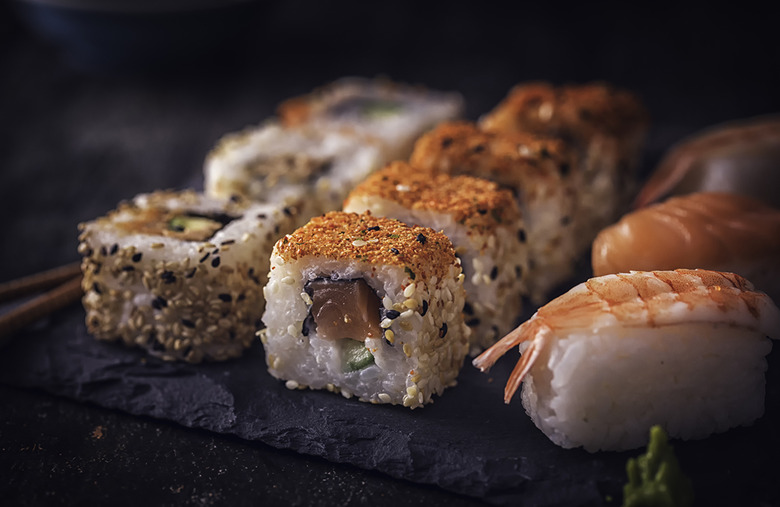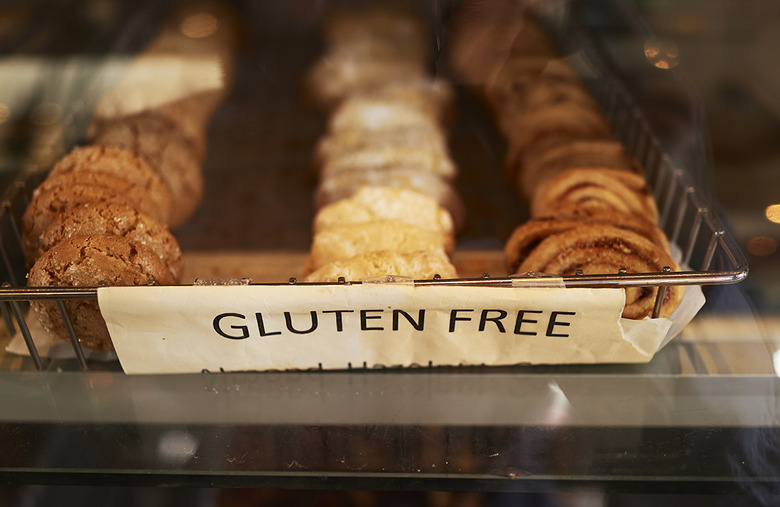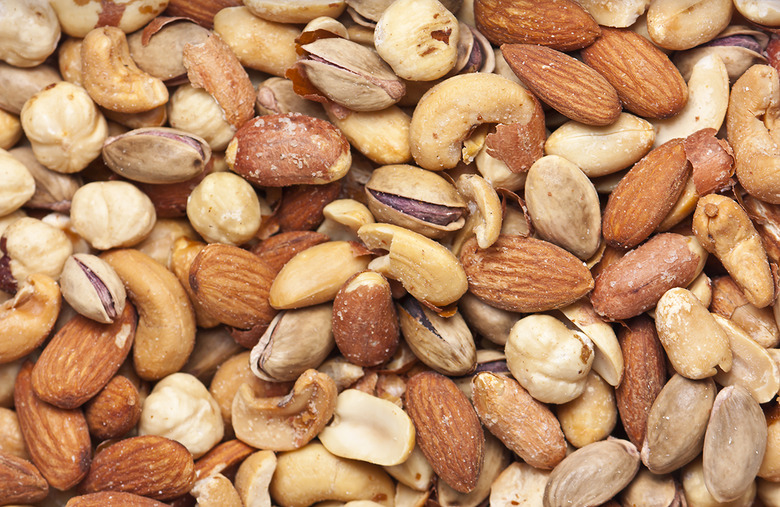Sushi, Yogurt And Other 'Healthy' Foods You Should Avoid
Trying to follow a healthy diet in the real world can be like trying to follow a path through a jungle. Are carbs bad? Can certain foods really reduce your cancer risk? Do you need a supplement? Misleading labels on our food can only make things even more confusing, so we spoke with Stephanie Schiff, a registered dietitian at Northwell Health's Huntington Hospital in New York, to find the truth. The following 26 foods may present themselves as healthy, but may not be as nutritious as they seem.
Sugary yogurt
"Eating yogurt is an awesome way to add good bacteria to your gut," Schiff says. But she notes too many yogurts have sugar as a top ingredient. So how can you make sure you're actually eating one of the best foods for gut health? Buy plain yogurt instead, and stir in healthy foods like fruit, nuts, low-sugar granola or chia seeds. She also recommends Greek yogurt, a higher-protein kind of yogurt. Non-dairy folks can opt for almond and soy yogurt.
Diet soda
Ah, diet soda. While this fizzy drink may have zero calories, there are some scary reasons you might want to stop drinking it. Schiff admits that diet soda can be a better option than sugar- or fructose-sweetened soda, but it's important to remember that the manufacturers can get the sweet taste in a variety of ways. Steering clear of artificial sweeteners is possible without giving up fizzy drinks. Schiff suggests that those who crave a soda try a stevia-sweetened product instead. "Stevia has no calories and is a natural product," she added.
Trail mix
Hiking is a healthy pursuit, and trail mix may seem like an equally healthy snack to take with you. But you may accidentally overdo it on candy and chocolate chips. "Stay away from the ones with M&Ms, or yogurt-covered fruits," Schiff advises. These trail mix ingredients can have a lot of added sugar, which is fine for satisfying your sweet tooth but might not be the greatest everyday snack. Lower-sugar options include trail mix with unsalted raw nuts, seeds and unsweetened dried fruits, which can provide fiber, antioxidants and healthy fats. Don't be afraid of high-fat foods — they can be really good for you.
Reduced-fat peanut butter
Opting for low-fat versions of high-fat foods is a "healthy" habit that really isn't healthy at all. For instance, the fats in peanut butter are really good for you and can help keep you satiated until your next meal. For many products, when manufacturers reduce fat, they increase sugar or fillers, Schiff warns. She encourages peanut butter lovers to compare sugar content and added chemicals of peanut butter brands. Standard peanut butter may be a better choice. And we're not sure who needs to hear this, but peanut butter is one of those foods you should never refrigerate.
Granola
Granola is great as a snack, as cereal or sprinkled on yogurt, but not all granolas are as healthy as they seem. Schiff says you should check to see if granola brands have added sugar, palm oil or partially hydrogenated oils — all inflammatory ingredients you should avoid — listed high on the nutrition panel. She also says to remember that even "natural" ingredients like honey and maple syrup are still sources of sugar.
Bottled tea drinks with added sugar
Tea is healthy, right? Picking up a bottled tea may be healthier than grabbing a sugary soda, but some bottled teas actually have as much sugar as that soft drink. "Go for the ones with no added sugar, just pure tea," Schiff encourages. "They're out there. And green tea will give you an extra boost of antioxidants."
Energy bars
Energy bars are an easy road snack, combining the handy shape of a candy bar with better-for-you ingredients. But are they really better? "Energy bars tend to have unnecessary additives, which you don't need," Schiff says. She urges people who want to eat energy bars to look for bars made with a healthy, natural protein source, such as nuts, seeds or quinoa, plus minimal sweeteners and a short ingredient list.
Fruit juice
For some people, a glass of OJ goes hand-in-hand with their breakfast plate, but Schiff says she "very seldom" thinks juices are a good option, and that we're often better off with fresh fruit instead, which has the same benefits of fresh juice without losing the fiber. Of fruit juices, her favorite is pomegranate upon occasion. "Studies have shown that it may improve cognition."
Sugary instant oatmeal
Oatmeal has healthy, soluble fiber, which is good for your heart, Schiff notes. But some instant oatmeal packets are crammed with sugar. One easy option she recommends is to prep your own overnight oats. Just take 1/2 cup of rolled oats and 1/2 cup of milk — either dairy or plant — and mix them in a jar to leave in your fridge overnight. "The oatmeal will be creamy the next morning, no cooking required," she says. "Then you can add fruit, coconut, nuts, cinnamon, cocoa nibs, anything, and eat!"
Smoothies
Smoothie chains may hype up the health factor of their drinks, but it really depends on the ingredients. Many chains lean heavily on sugary add-ins that make their smoothies more like milkshakes. A healthier option is to make them at home with no-sugar yogurt and consider using unsweetened, plant-based milks, Schiff suggests. "Use mostly vegetables, with some fruit."
Bran muffins
You might feel that it's healthier to have a bran muffin with your coffee instead of a chocolate doughnut, "but it's usually a sugar and fat bomb," Schiff reveals. So if you're choosing the muffin to try to cut sugar, you may as well get the sweet treat you really want.
Fruit leather
Fruit is healthy, but fruit leather isn't what you think it is. "This is candy, not fruit," Schiff says. Fruit leather is high in sugar, and the sticky texture can linger on your teeth and contribute to cavities. It's a fun treat, but don't think of it as a replacement for fresh fruit.
Veggie burgers
We know what you're thinking: Why would veggie burgers be on this list? Schiff agrees that these can be good options if you're subbing them in for red meat. But you may still want to check the label. "If you have high-blood pressure or are at risk for heart disease, watch the sodium levels, which can be a bit high in some vegetable-based burgers." For example, Impossible Burger, Beyond Burger and Morningstar Farms' Garden Veggie Burger all have 350 milligrams of sodium or more. An 85% lean ground beef patty has 80 milligrams, and a turkey burger has 70 milligrams.
Frozen yogurt
Admittedly, fro-yo usually has less fat and sugar than a treat from the ice cream stand, but watch the sugar content, Schiff says. It does, however, also have the benefits of gut-balancing probiotics in its corner. She recommends you don't go overboard on toppings.
Canned beans
Beans are often a healthy choice filled with fiber — and an awesome side to serve at the cookout with grilled chicken, steak, shrimp and more — but buying the canned version can muck with your wellness plans. Some canned beans have more sodium than a dish you'd cook from dried ones. Look for varieties that are lower in sodium or make your own.
Bottled sports drinks
You're playing soccer or lifting weights and during a break, you reach for a big-name sports drink to slam. This might not be the best idea. Schiff says these popular beverages can be filled with sugar and chemicals and suggests you rehydrate with regular water. Not drinking enough is just one diet mistake you're making before noon.
Rice cake
Rice cakes are still a staple for many dieters. Schiff notes that the rice cakes have little to no fiber and don't have a lot to offer on their own health-wise. But if you like to eat them from time to time, you can use them as a vehicle for a nutritious spread with protein or healthy fat like peanut butter or avocado.
Acai bowls
Acai bowls, made with a highly nutritious Amazonian berry, are a 2010s trend that took off as fast as "Fortnite." They are also one of the best-kept secrets of Costco's famous food court. But these bowls can be packed with sugar, no matter how healthy the sellers try to make them sound. "Add nuts for protein and fat, so you're not hungry half an hour later," Schiff says. "And get a small one."
Bottled water
Bottled water isn't bad for you — though the plastic is not eco-friendly — but why spend money on something that comes out of your sink? "Bottled water is usually no better than tap," Schiff says. "As a matter of fact, many bottled water companies do get their water from a tap. Check your local water supply. If it's good, use it!" Your town might even have the best-tasting tap water in the U.S.
Couscous
Couscous sounds like a healthy replacement for other types of carbs you might eat in a main course. But Schiff says that couscous has little fiber and is similar in nutritional value to rice, bread and plain white pasta. So if you want a bowl of spaghetti, just make it — and make it right.
Pretzels
Crunchy pretzels may seem like a healthy replacement for potato chips, but be careful. Schiff says they are often made with white flour, have very low fiber and can contain a lot of sodium, partly from those added salt crystals that make pretzels so delicious. "Look for whole-grain versions," she says, if you plan on indulging in this iconic snack food.
Multigrain breads
Multigrain sounds healthy, but some are made with enriched flour. This is refined flour — stripped of its nutrients to make white bread — that's been fortified with vitamins. It doesn't get its fiber back though, which is why it's best to go with nutritious whole-wheat or whole-grain bread. In fact, there are a few things you should look out for the next time you buy a loaf of bread — like its super-short shelf life.
Sushi
Sushi can be a little fishy, even if it's from the best sushi restaurant in your state. Schiff agrees the cuisine is often a healthy choice, since the raw fish isn't fried or sauteed in oil. But you may be consuming more white rice than you realize. And be careful when you dip. The sodium in soy sauce can send your blood pressure through the roof.
Flavored soy milk
Soy milk is fine, as is any plant milk, Schiff says. But now that these dairy alternatives have become so popular, manufacturers are appealing to consumers' sweet tooth by making chocolate, vanilla and other sweetened versions. "Watch out for flavored varieties, which often have a lot of added sugar," Schiff says.
Gluten-free versions of foods
Unless you have celiac disease or are gluten-intolerant, gluten-free packaged products won't make you healthier, Schiff says. "When companies take gluten out of their products, they often add more fat, sugar or salt." If you need to go gluten-free, do so naturally, she advises, by eating more vegetables, fruits, gluten-free whole grains and lean proteins. Steer clear of packaged cookies, cakes and breads that tout the "GF" label. If you're avoiding gluten because you think it's bad for you, keep in mind that this is one of many common myths about gluten you shouldn't believe.
Salted nuts
Packaged salted nuts can quickly load you up on salt, and a serving size is only about a handful. "Nuts have fat, and although it's healthy fat, you shouldn't overdo it," Schiff says. If you're looking for something quick and satisfying, salted nuts can be a good choice. If you're looking for something you can snack on all day, however, you may want to opt for a less calorie-dense food with less sodium. Unsalted almonds are actually among the best foods for your heart.
More from The Daily Meal
Headaches, Dry Skin and Other Signs You Don't Drink Enough Water
Most Popular Vegetable by State

